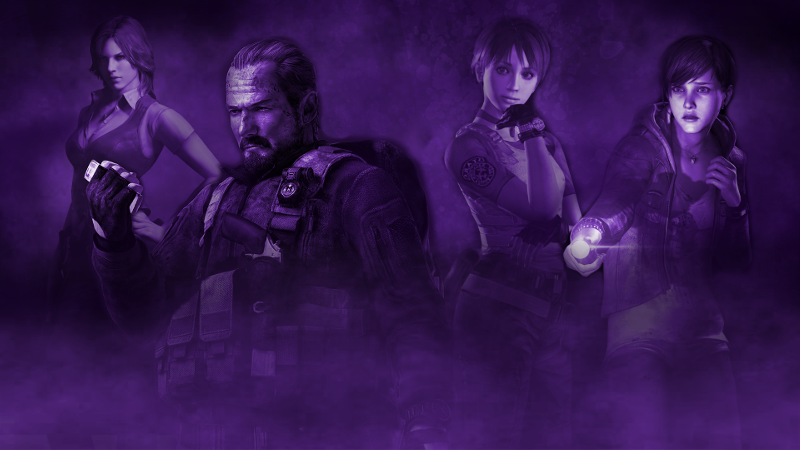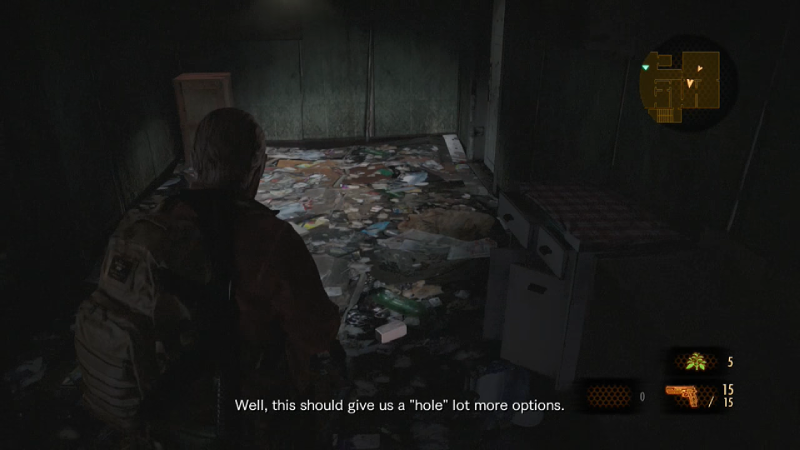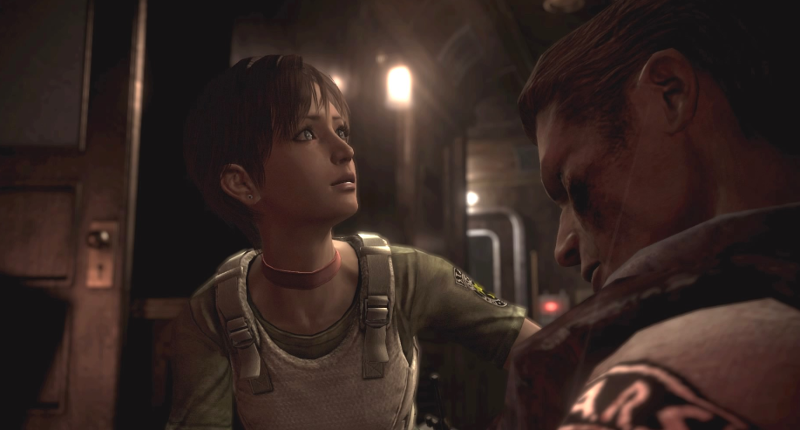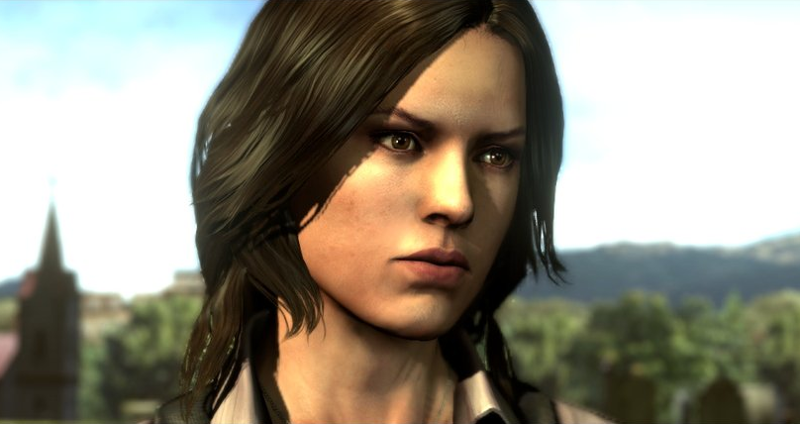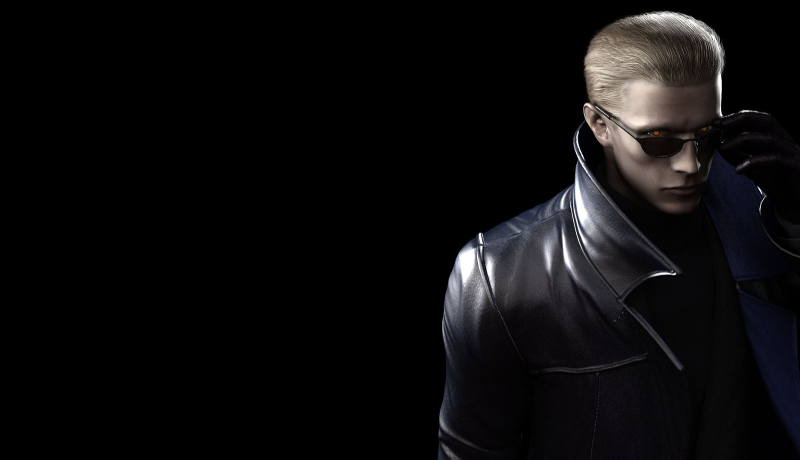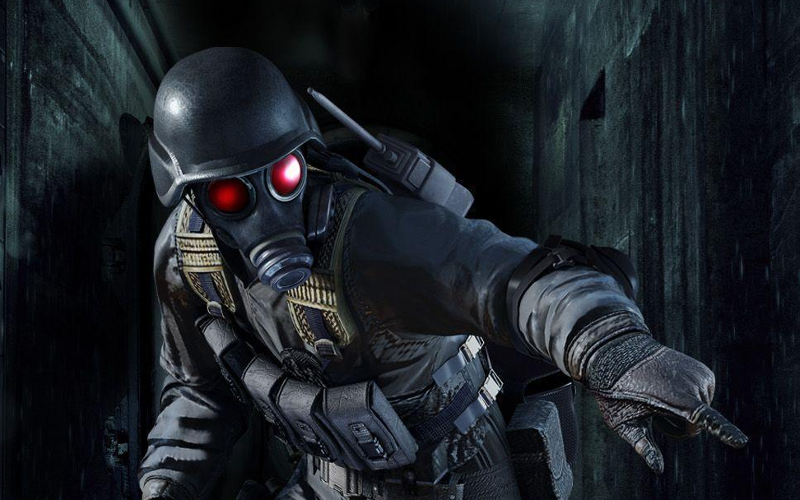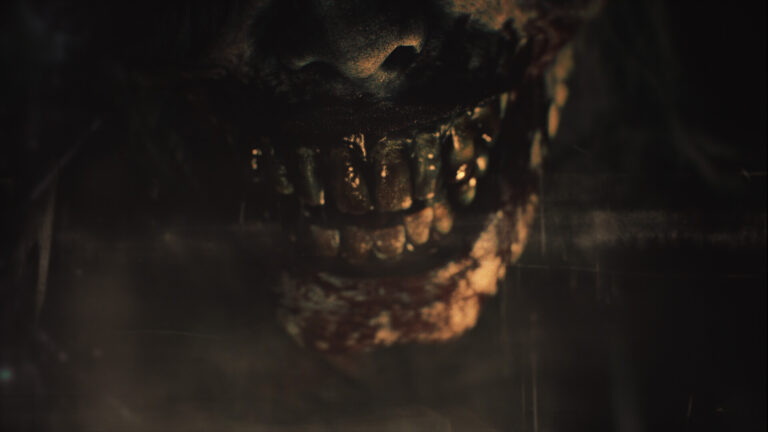Welcome back to part two of our Resident Evil series character analysis. In part one, we covered the major protagonists and the trends surrounding them. If you haven’t read part one you can do so here. In this section, we’ll be looking at some of the side characters the series has to offer.
While earlier entries in this series come from an era in which very few games had quality writing, certain issues have persisted in more recent years. This is probably pretty obvious to most, but I find that this stems from a lack of consistent care by Capcom. The story focus on Resident Evil games has always been the silly virus soap-opera narrative (unless its Resident Evil 7), which is fantastic and it something that distinguishes Resident Evil from many other horror games. While the narrative has its ups and downs, I generally find myself enjoying it. That being said, cheesy writing and well-written characters can co-exist, and I’ll start with an excellent example.
Barry and Moira Burton
Side characters have often been a hit or miss for Capcom and the Resident Evil series; Barry Burton is a hit. Barry is well established as being the ‘family man’ of the former S.T.A.R.S unit introduced in the first game in the series. Of course, his actions in the first Resident Evil support this idea, but the ‘dad jokes’ present throughout Revelations 2 do an excellent job at creating a general feel of what kind of person Barry might be in his civilian life — something we could only glean from the non-canon novels.
Upon acquiring a drill…
I really wish that more games would create this ‘sense’ of knowing what our characters are like under more normal circumstances. Often, audiences only see how the characters act and behave given the tension-filled situations provided by the narrative.
I would point to Final Fantasy XV as being an excellent example of allowing us to relate to characters through a variety of situations, and not just those that stressful. Don’t get your pitchforks out, Final Fantasy fans, the game has a LOT of problems with its writing, but the one aspect that game excelled at was creating realistic and understandable characters (for the main party at least). After putting many hours into that game, most players can have at least a vague sense of what the sensibilities of the main characters are, what their hobbies may be, and so on.
Obviously, different types of stories will call for different approaches to writing. Regardless, there is value in letting your audience know what kinds of people these characters are when they are not fighting to survive. Barry doesn’t just appear and act similarly to how he did in the last game he was in; in Revelations 2, his personality shines through and with it carries world experience (age, fatherhood), suggesting to players that he’s not just been plucked from one game to the next. So to the creative minds that were responsible for Barry’s character in the series, good job. Yay! You did it – gold star.
Conversely, with Revelations 2, Barry’s daughter Moira received a lot of flack because she was cartoonishly vulgar, injecting unnecessary and out of place “fuck”s into every “pissing” sentence (at least in the English version). My response to that would be that, up until recently, Resident Evil was never super-serious or grim-dark. It’s almost as if the series has had some level of self-awareness about how ridiculous the story of this franchise can get, which is great. So I don’t see the silliness of Moira’s behaviors to be out of place because it is kind of expected of this series. One time Jill said, with a straight face, “You want S.T.A.R.S? I’ll give you S.T.A.R.S!” The cliches and the cheesiness of Resident Evil is one of the things that has made the series stand out, so a loudmouth like Moira existing is fine. In fact, her “shittingly” obnoxious language was probably one of various means that Moira used to defy her father. The writers at Capcom managed to take a ridiculous personality and give her a solid character arc concerning overcoming her fears (the concept of fear is an integral part of this story).
Rebecca Chambers
Rebecca Chambers is the quintessential ‘textbook smart, but inexperienced’ rookie. She was only 18 years old during the Spencer Estate Incident, and it was her first field mission. Her primary job was to capture escaped convict Billy Cohen. Of course, things don’t go as planned, so when she realized Billy isn’t a bad guy the two begin to work together to survive and there you have the events of Resident Evil 0.
As we all know, they succeed, and the inexperienced newbie is a stronger person as a result. For most RE protagonists, this is the part in which they become a highly skilled secret agent, taking down mega corporations. Pretty much immediately after RE0, Rebecca wanders into the infamous zombie-filled mansion and takes a nap. She wakes up and then the first Resident Evil takes place.
There was a bit of a problem with Rebecca however. When Rebecca enters the Spencer Mansion, she wasn’t able to stop a Hunter, despite killing zombies and leech monsters the day before. That being said, this inconsistency is likely a result of the fact that the first Resident Evil was obviously made before its prequel, so the developers didn’t have Rebecca’s experience from the previous events written.
However, even after RE1, Rebecca doesn’t go on to have a long, illustrious career in zombie murdering. Instead, she becomes a university professor and researcher, because she is a nerd. I appreciate that in all of her later appearances in the series Rebecca didn’t become a “hardened badass.” She appears to be affected by the traumatizing nature of the events much more than anyone else, so in that regard, she’s one of the more realistic characters in an otherwise ridiculous franchise.
Helena Harper and the Basket of Forgettables
While there are certainly exceptions, the Resident Evil franchise suffers from BCS: Boring Character Syndrome. Resident Evil 6 suffers from this debilitating disease immensely. Hold on; I’m not bashing this game because it’s a shooty-man-game; I like shooting things, but I’ve seen wooden planks more compelling than some of the characters in this game.
I’ll single out an example here. Capcom really, really wanted us to care about Helena Harper and her dying slimy sister, but in cases like Helena’s, we don’t have the information we need to become attached to the characters and their struggles. It’s one thing to care about a new character; it’s a whole other challenge to care about one poorly introduced.
Consider every scene that Helena is in. What does she do? Nothing. She just stands there and looks angry about being in this game. We never see any prior scenes in which she interacts with her sister, and we don’t know anything about Helena outside of what events directly transpire in RE6. In Revelations 2, Moira worked because she talked about herself– things that weren’t directly tied to the plot. Barry and the child character of Revelations 2, Natalia, spoke about their lives outside the events taking place in the game. The audience was able to understand these characters on an infinitely more intimate level, and so we gave a shit when something significant happened to them. Helena may have cried when her sister turned into a naked tentacle lady, but it was too little too late, and the conclusion of that character arc is completely overshadowed by Leon and Ada because they have an interesting relationship dynamic. There is so little to grasp on here with either Helena or Deborah for any of us to care if our main partner character is suffering.
Remember Piers Nivans? I don’t. Parker?…Jessica? I only remember Sheva because I played a lot of RE5, but that doesn’t change the fact that generic NPCs are often more compelling than her. Although I praised Revelations 2 a lot earlier, there were about five characters written for the sole reason to be killed off. So many insignificant characters have appeared in the Resident Evil series. A lot of them may as well be cogs in the ‘plot machine’ so that the protagonists can suplex some mutated terrorists. There are a few exceptions that work like Luis from RE4, but again, a well-designed personality makes up for limited screen time.
As most of you have already observed, there are so many characters out there that no one cares about, because they don’t do anything, or behave in any memorable way. Designing these characters to have more prominent personalities or even the most basic of character arcs would be an improvement to just tagging along with the heroes. Anyways, I won’t spend any more time trying to convince you guys of something you already probably already agree with, let’s move onto our last character.
Albert Wesker
The series antagonist, Albert Wesker, is a one-note character, but probably one of the best one-note characters I’ve encountered. He developed a god-complex during his time with Umbrella and its founder Oswell E. Spencer and pretty much did evil things just because he is evil. While he isn’t winning any points for being relatable, the ostentatious presentation of this character is so amusing that Albert has become one of my favorite antagonists – if not THE favorite.
Throughout the series, Albert Wesker projects a calm and cunning demeanor regardless of the surrounding circumstances, and his dark clothes and sunglasses feed into the idea of Wesker being an extremely powerful force to be reckoned with (later demonstrated through his Matrix-like powers). The character was brought to life by various voice actors including D.C Douglas, Peter Jessop, and Richard Waugh; all of which did an excellent job in the role. Each incarnation is more interesting to watch than all the other incredibly forgettable antagonists we’ve had since RE5.
I used to think that Wesker was merely a shallow, albeit, amazingly executed villain, but after consulting with RoH’s own Rourke, I found there was a bit more to him to like. While Wesker’s character arc certainly isn’t the most relatable one, his transition is interesting nonetheless. Kidnapped from ‘genetically superior’ parents, and conditioned to be a member of Oswell E. Spencer’s race of genetic superhumans from early childhood, his entire existence revolved around bringing upon the next phase in human evolution, and every string he pulled behind the scenes was done to further this cause.
While this character may have been ten steps ahead of the protagonists and viewers, he was just a puppet of Umbrella founder Oswell E. Spencer. In Resident Evil 5, he comes to this realization and decides to take matters into his own hands — literally. Wesker is closer to achieving his goal than ever before, and his calm demeanor started to fade away. The lifetime of conditioning and grooming for this cause was on the verge of fruition, and his extreme ego drove him to madness, the result being a babbling mess of tentacles, unable to think clearly and only able to vilify his rival, Chris. In conclusion, Wesker isn’t particularly a relatable character, but he has had an interesting conflict throughout the series, and following him through his endeavors has been incredibly entertaining.
Given the fun, cheesy nature of the franchise’s writing, a lot of entertaining characters like Leon and Wesker are spawned. But there are some pleasant exceptions like Rebecca and Barry that offer more than mere entertainment. Although unfortunately, characters featuring meaningful arcs are somewhat rare for the series. For every Barry Burton, there is a Helena and a Piers. For every Wesker (there is only one…for now), there is a Derek Simmons from Resident Evil 6 or Morgan Lansdale from Revelations or the flamboyant Wesker wannabe Glenn Arias from Vendetta.
But, to wrap things up, Resident Evil‘s writing works for unusual reasons, but while the tacky writing is amazing, the games would still benefit from better-executed character arcs. If Capcom could find a way to take all of these well-established characters and make them more compelling, our investments in characters like Chris and Leon could go beyond them just being staples of the series. For that to happen, however, these characters need to accomplish more than just beating-the-bad-guy-again when on-screen. Capcom also needs to solidify who these characters are and sensibly evolve them over time. It’s a feat I know the folks at Capcom can accomplish because they have done it before. It is simply a matter of whether they are going to make it happen or not.
Now that I have that out of the way, I am going to write a 10-page article about why Hunk is the best Resident Evil character, and ergo, why he should be the lead character of every RE game from now to the end of time. 4th Survivor with a triple-AAA budget, anyone?

 TheAveryChu
TheAveryChu